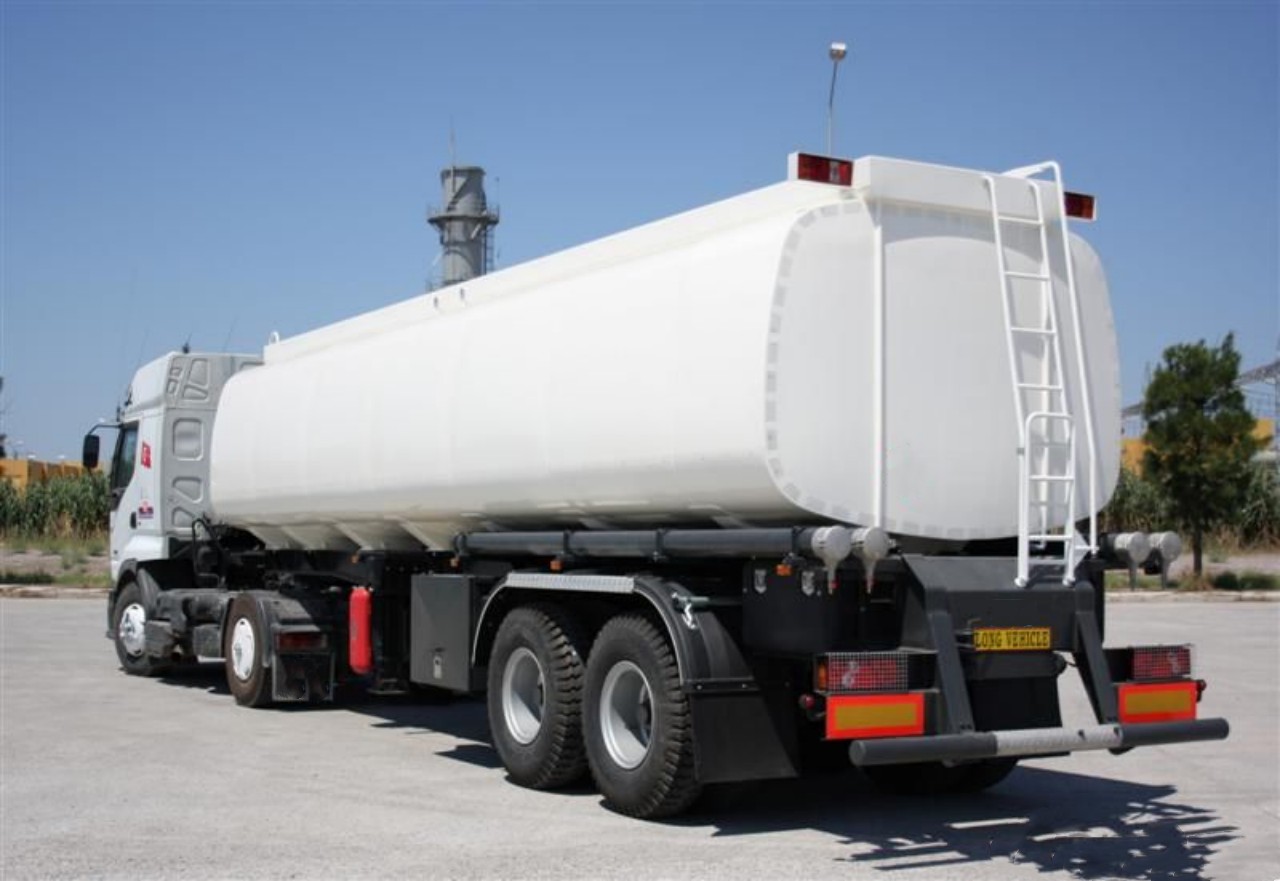Carbon Steel Tank Truck: Durability, Cost, and Applications for Heavy-Duty Tank Trucks
Tank trucks play an indispensable role in the transportation of liquids, gases, and powders. Among the materials used for constructing these specialized vehicles, carbon steel stands out as a popular choice due to its durability, cost-effectiveness, and versatility. This article delves into the characteristics of carbon steel tank trucks, their advantages, and the diverse applications they serve in various industries.
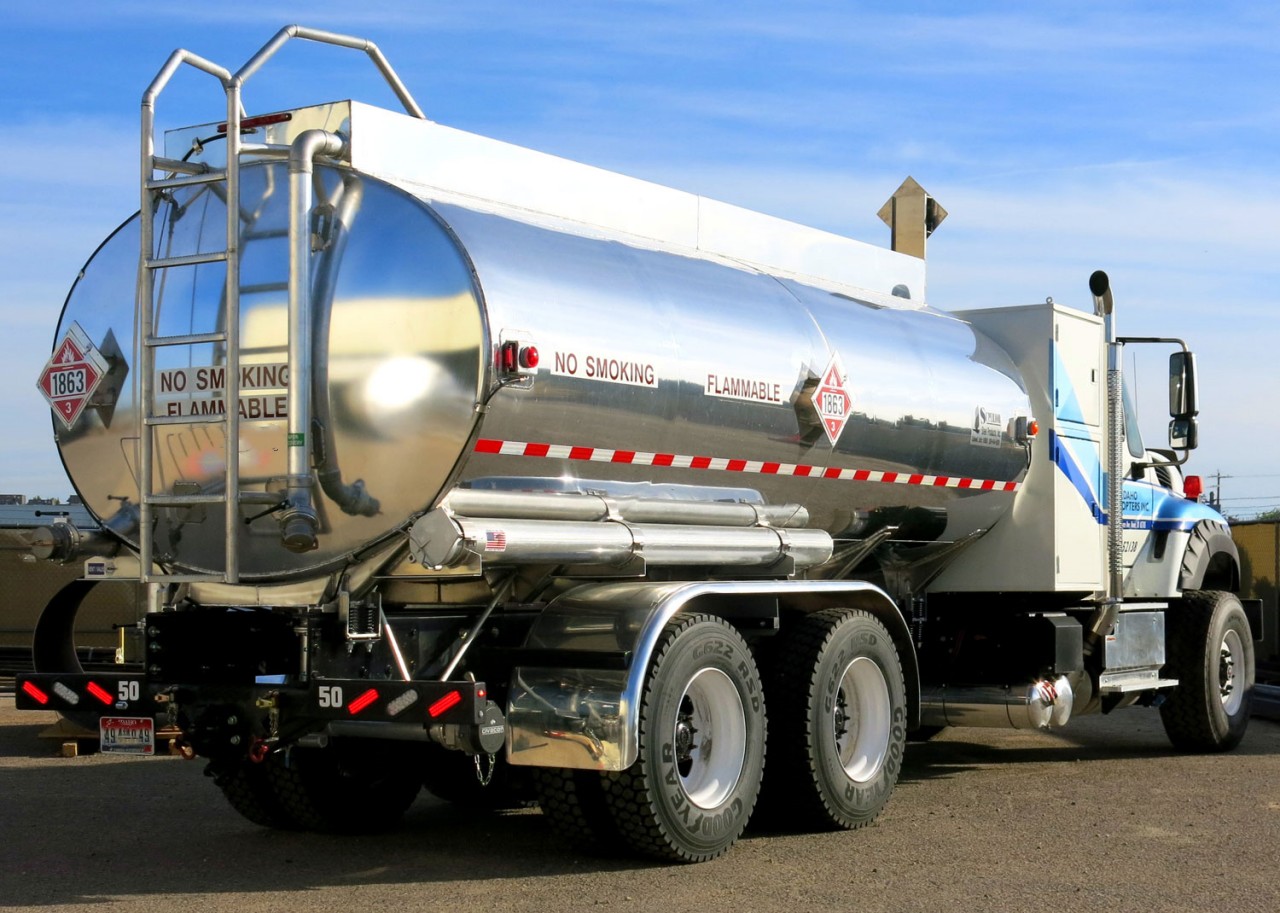
The Appeal of Carbon Steel in Tank Trucks
Carbon steel is an alloy of iron and carbon, often augmented with other elements to improve its properties. It is renowned for its strength, resilience, and ability to withstand harsh conditions. These qualities make it an ideal material for heavy-duty tank trucks, which are often subjected to rigorous demands during operation.
Durability
One of the primary reasons carbon steel is preferred in tank truck construction is its exceptional durability. Carbon steel tanks can endure significant wear and tear, making them suitable for transporting substances under varying conditions. These tanks resist impacts and abrasions better than many other materials, ensuring longevity even when hauling corrosive or abrasive materials.
Additionally, carbon steel performs well under high-pressure conditions, which is critical for the safe transportation of compressed gases and high-density liquids. Its ability to retain structural integrity over prolonged periods reduces maintenance costs and enhances the reliability of tank trucks.
Cost-Effectiveness
Cost is a significant consideration in the design and construction of tank trucks. Carbon steel strikes an excellent balance between affordability and performance. It is cheaper to produce and process compared to materials like stainless steel or aluminum, making it an economical choice for manufacturers and operators.
Moreover, the widespread availability of carbon steel simplifies production logistics and reduces lead times for custom-built tank trucks. Operators also benefit from the material’s lower replacement and repair costs over its lifespan, further enhancing its cost-effectiveness.
Customizability and Versatility
Carbon steel’s malleability allows it to be fabricated into various shapes and sizes, catering to a wide range of tank truck specifications. Whether the requirement is for single-compartment tanks or multi-compartment designs, carbon steel adapts easily to meet diverse needs. Its compatibility with a variety of coatings and linings further broadens its application, allowing it to transport different types of substances safely.
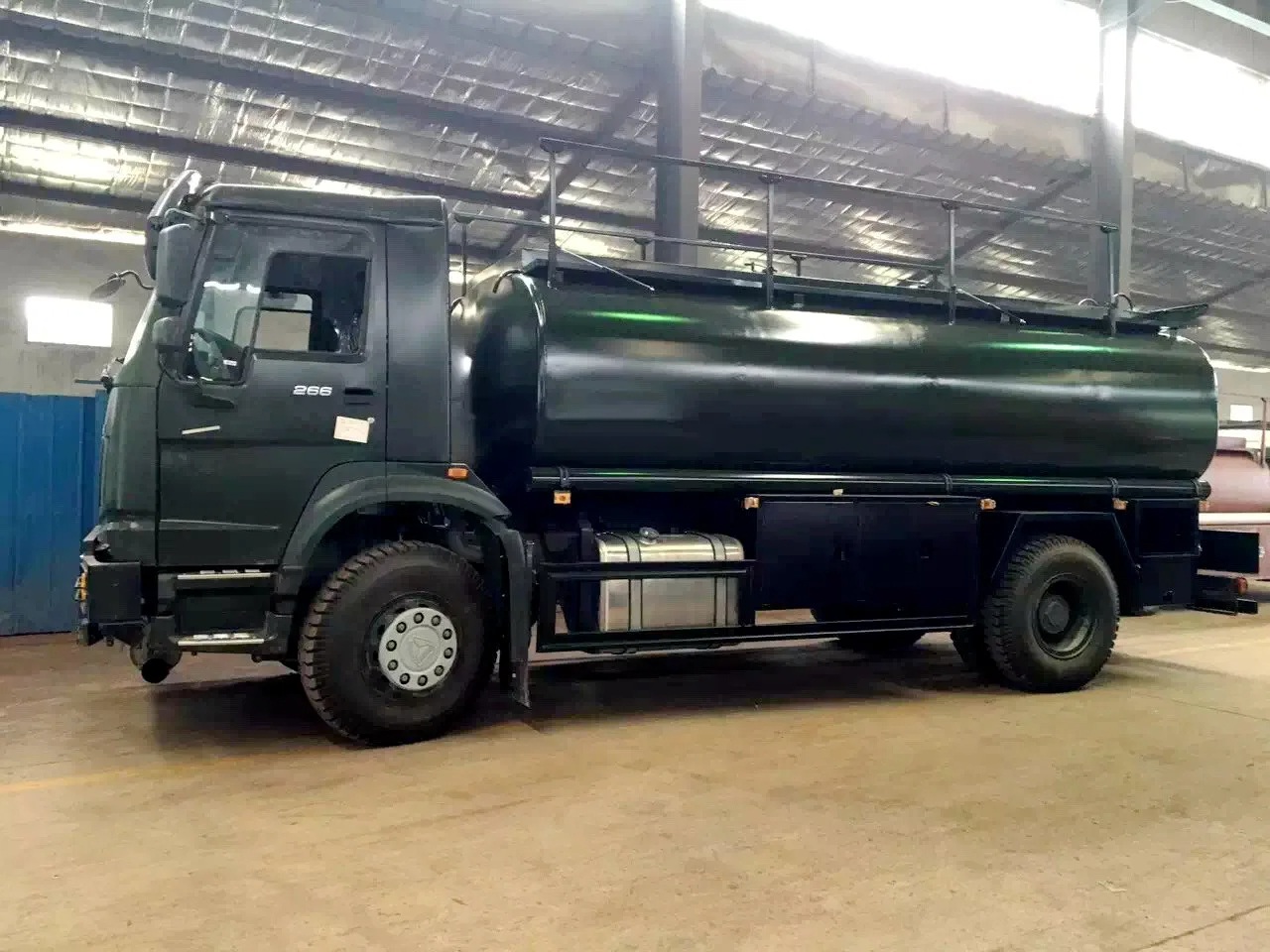
Applications of Carbon Steel Tank Trucks
Carbon steel tank trucks are utilized across multiple industries, from agriculture and chemicals to petroleum and construction. Their robust construction and adaptability make them suitable for handling diverse materials and operational challenges.
Petroleum and Chemical Transport
One of the most prominent uses of carbon steel tank trucks is in the petroleum and chemical industries. These trucks are designed to transport gasoline, diesel, crude oil, and a range of chemicals. The durability of carbon steel ensures that these volatile and often corrosive substances are safely transported.
For chemicals, carbon steel tanks can be lined with specialized coatings to prevent chemical reactions with the tank material. This versatility enables these trucks to handle both hazardous and non-hazardous materials effectively.
Agricultural Applications
In agriculture, carbon steel tank trucks are often used to transport water, liquid fertilizers, and pesticides. Their sturdy construction ensures that these essential substances are efficiently delivered to farms, even in remote areas. The ability to withstand rough terrain and weather conditions makes carbon steel an excellent material choice for agricultural logistics.
Construction and Mining
The construction and mining sectors also rely heavily on carbon steel tank trucks. These trucks transport essential materials like water, cement, and fuels required for heavy machinery. The demanding nature of these industries necessitates durable and reliable equipment, and carbon steel tank trucks meet these requirements admirably.
Food and Beverage Industry
While stainless steel is more commonly associated with food-grade applications, carbon steel tank trucks also find their place in this industry, especially for non-edible liquids like water or cleaning solutions. When lined with appropriate coatings, they can transport certain food-grade liquids safely as well.
Waste Management
Carbon steel tank trucks are often used in waste management to transport sewage, wastewater, and industrial effluents. Their robust build ensures they can handle the corrosive and abrasive nature of these materials without frequent repairs.
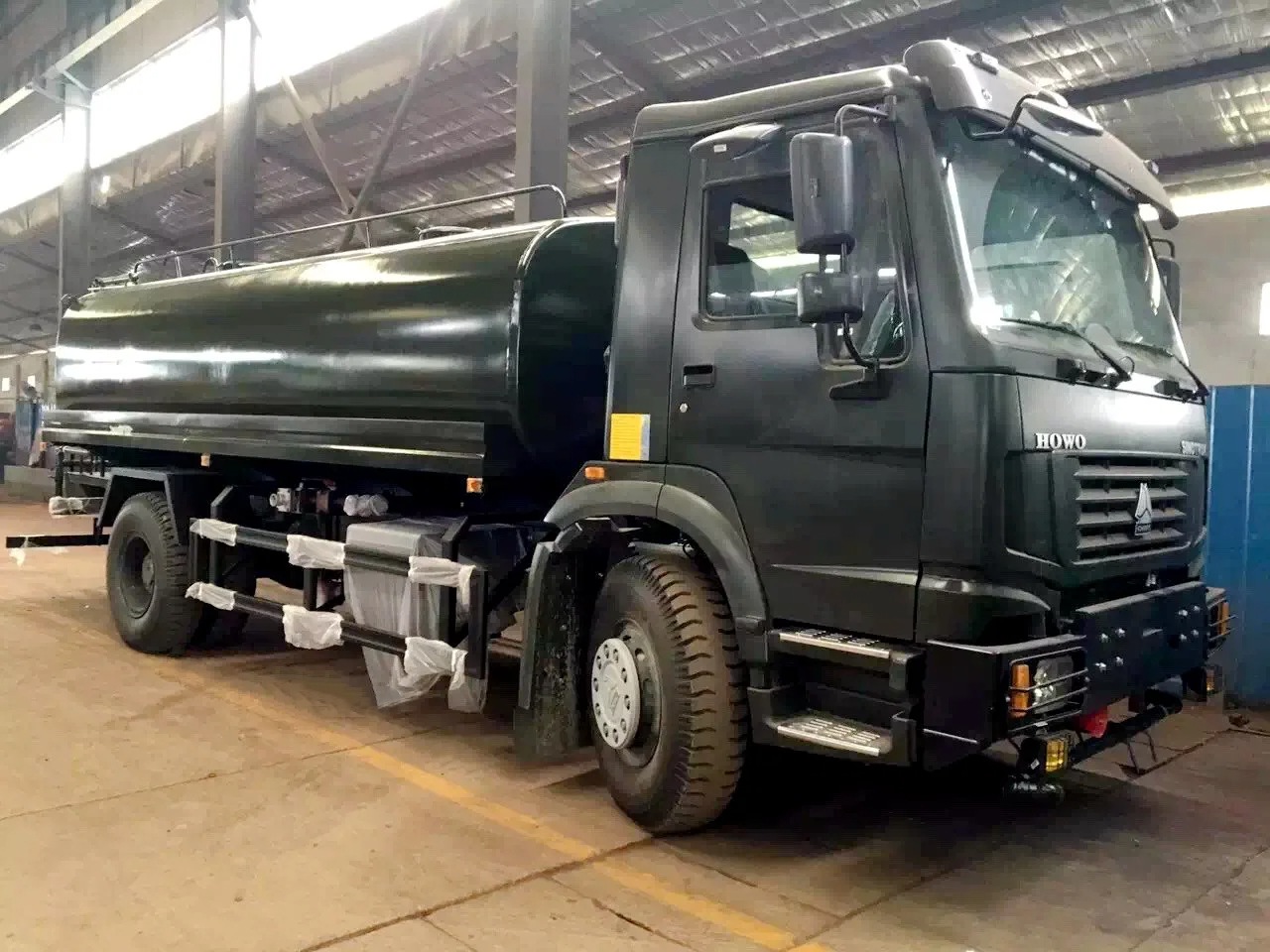
Challenges and Considerations
While carbon steel tank trucks offer numerous advantages, they are not without challenges. Operators and manufacturers must address certain limitations to maximize their performance and longevity.
Corrosion Susceptibility
One of the primary drawbacks of carbon steel is its vulnerability to corrosion. Unprotected carbon steel can degrade when exposed to moisture and certain chemicals, potentially compromising the tank’s integrity. To mitigate this, tanks are often treated with anti-corrosion coatings or linings, though this adds to the initial cost.
Weight
Compared to materials like aluminum, carbon steel is heavier. This increased weight can affect fuel efficiency and reduce payload capacity, which may be a concern for some operators. However, the trade-off in durability often justifies the additional weight in heavy-duty applications.
Maintenance Requirements
Regular maintenance is crucial to prevent rust and other forms of degradation in carbon steel tanks. While these maintenance activities are generally straightforward, they require consistent attention to ensure optimal performance and safety.
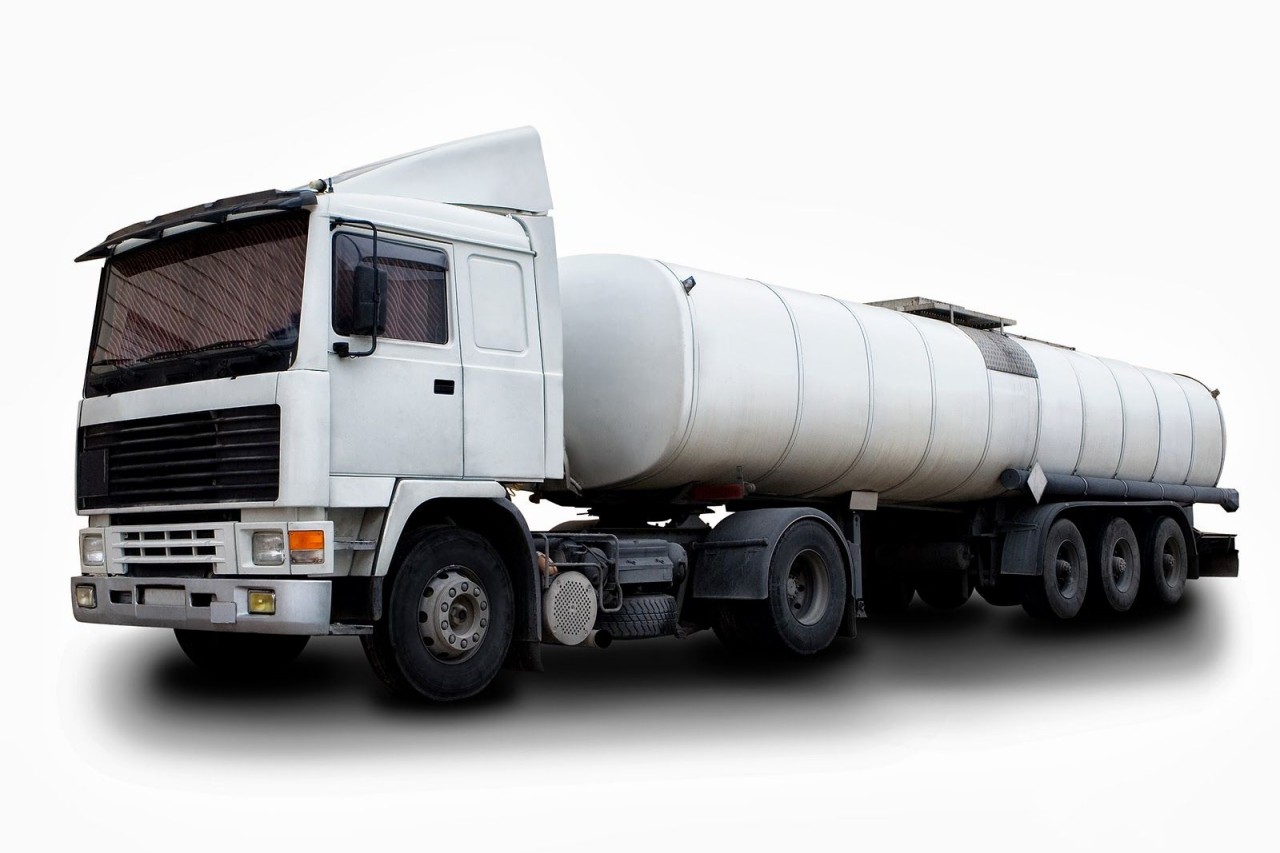
Innovations and Future Trends
The tank truck industry is continuously evolving, and innovations in carbon steel technology are enhancing the performance of these vehicles. Advances in anti-corrosion coatings, such as epoxy and polyurethane linings, are improving the durability of carbon steel tanks, extending their lifespan and reducing maintenance requirements.
Additionally, hybrid designs that combine carbon steel with other materials are gaining traction. For instance, integrating carbon steel with stainless steel components can optimize performance while controlling costs.
The push for sustainability is also influencing the industry. Manufacturers are exploring methods to reduce the carbon footprint of carbon steel production and enhance the recyclability of old tanks. Such efforts align with global trends toward greener and more efficient logistics.
Conclusion
Carbon steel tank trucks represent a cornerstone of heavy-duty transportation, offering a robust, cost-effective solution for diverse industries. Their durability, versatility, and adaptability make them a preferred choice for transporting a wide range of materials, from petroleum and chemicals to agricultural and construction supplies.
While challenges like corrosion and weight persist, advancements in materials science and protective technologies are addressing these issues, ensuring that carbon steel remains a viable and reliable option for tank truck construction. As industries continue to evolve and demand more from their logistics solutions, carbon steel tank trucks are poised to meet these challenges head-on, reaffirming their place as a critical asset in the transportation sector.
